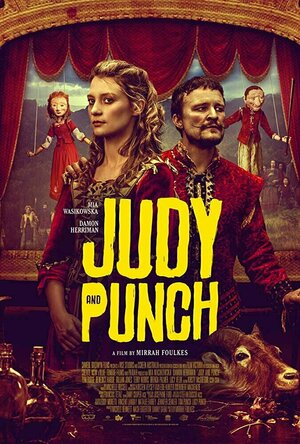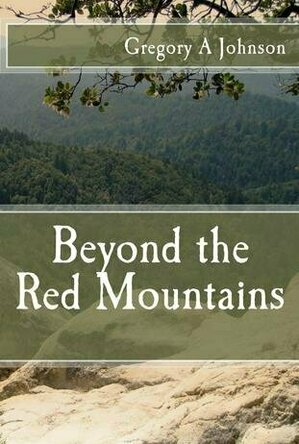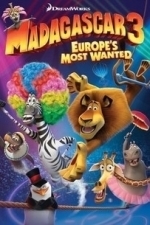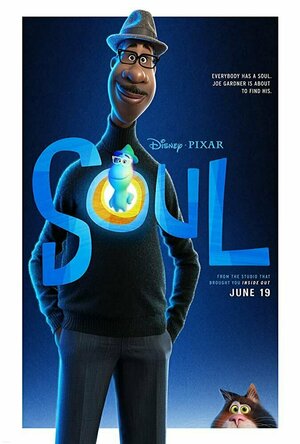Emma @ The Movies (1786 KP) rated Judy & Punch (2019) in Movies
Oct 31, 2019
In the town of Seaside, which is nowhere near the sea, Judy lives in something less than domestic bliss with Punch and their baby. Punch's shows are a hit and he's got dreams of grand things, but Judy is the real brains behind the outfit though he'd never admit it.
Judy leaves Punch in charge of the baby while she runs errands but despite the responsibility he gets drunk and an unforgivable accident occurs. In his effort to cover his tracks Punch puts his wife on a journey that leads her to a community in the woods where she can plan her revenge on him for his evil ways.
The film has a very heavy sense of fairy tale about it and certainly the setting wouldn't be out of place in almost any tale you could bring to mind. The location and buildings are perfect and yet somehow didn't seem quite right, this is very much an afterthought though, as I watched it I thought the depiction was good.
The parallels shown between the story of the couple's home life and the puppet show are clear throughout, my only worry is that you might not get a good understanding of that if you aren't aware of the traditional Punch and Judy shows. This wouldn't have been something I'd have thought about before but more and more I talk about things with people and the response is "I've never heard of that"... god I feel old.
Damon Herriman has taken off his Manson mask for this one and I found him to be a very good lead as Punch. He manages to capture the devious side of Punch, and honestly, anyone who can pull off the scene with the baby with a straight face deserves recognition... and yes, I do feel kind of bad for laughing.
Mia Wasikowska (who also starred in Blackbird, review coming soon) had two very different versions of Judy to play. Judy-1 gives us an outgoing and resilient woman, Judy-2.0 is angry and vengeful though there's a happiness in her once she gets to know the community who rescue her. This second incarnation wasn't entirely to my liking, I much preferred the earlier more lighthearted take on her. I can see why the change in her demeanour was fitting it didn't quite feel like a true transformation.
I enjoyed Judy & Punch, it was something different to watch which I always find to be an interesting experience but I'm not sure I'd need to see it again. I was entertained while I sat through it but apart from one scene there was nothing I see myself remembering further down the line.
Just a couple of honourable mentions: I enjoyed the music, the jazzed up classical pieces fit in nicely, and the dog wearing its own ruff? Adorable!
What you should do
I don't think you need to rush out and see this one but if you happen to come across it at some point it might be worth watching.
Movie thing you wish you could take home
It has to be an impish little dog wearing a ruff... because what else would a sensible person pick?!
Phil Leader (619 KP) rated Beyond the Red Mountains in Books
Nov 8, 2019
Kelvin's first clue that all might not be as he has been taught when he discovers an old book warning about a mysterious figure called Luther who seems to have been carefully erased from the history of Triopolis. And it is clear that he is not the only one who is aware of secrets.
Elizabeth is the princess of Westville, the centre of a civilisation that has conquered every other city in the world - there are not many. She is locked in a loveless and arranged marriage but is determined to find some way out.
When fate brings Kelvin and Elizabeth together they realise there is a lot more going on than the elders of either city would have them believe. Before long they are on the run, desperately trying to save themselves and their cities from dark forces. They have allies and enemies, but telling one from the other is only half the battle...
Beyond the Red Mountains is a fantasy novel that is of epic proportions but avoids all the tropes and cliches of 'epic' fantasy. There isn't really a great quest, there isn't a dark lord threatening all of existence. All of the characters seem very real and all have their own reasons for their actions, whether these are with or against the main protagonists.
There are many twists and turns and the story doesn't let itself get too bogged down in long conversations or descriptions, letting the story unfold to reveal the narrative and the history. Not every decision Kelvin and Elizabeth make is the right one, but it is always made with the best intentions. The characterisation really does stand out, with a lot of care taken to make the characters believable. I was particularly struck by one of the characters who are opposed to Kelvin and Elizabeth but the reader ends up feeling enormous sympathy for.
There is a (perhaps inevitable) romantic connection between Kelvin and Elizabeth but this is well played and unfolds very realistically and is never overplayed or overstated. Some of the keepers of ancient wisdom they meet are perhaps a little to forthcoming about forbidden knowledge but this means the story doesn't slow but can take the next step so this can be forgiven.
The prose is very simple, clearly aimed at a young adult audience, although some of the themes and scenes are perhaps not for the very young end of the spectrum. As an introduction to lengthy fantasy tales this works very well though. The ending is a real cliff hanger and definitely makes me want to read the sequel.
There were a few more spelling mistakes and incorrect (or plain missing) words in the eBook version I read but this wasn't really a problem, it was always clear what was intended.
I would recommend this book to anyone who wanted to tackle a human-scale epic fantasy novel with a difference, one that cared about all of its characters, even the ones nominally pitched against the 'heroes'.
Gareth von Kallenbach (980 KP) rated Madagascar 3: Europe's Most Wanted (2012) in Movies
Aug 7, 2019
Madagascar 3: Europe’s Most Wanted starts off where Madagascar: Escape 2 Africa left off, with Alex the lion(Ben Stiller), Marty the zebra(Chris Rock), Gloria the hippo (Jada Pinkett Smith) and Melman the giraffe (David Schwimmer) are stranded in Africa longing to get back to their beloved zoo in New York City. They realize the only way they will be able to return home is by relying on their super competent penguin buddies who have made their way to Monte Carlo with their chimp powered plane and the loot of jewels and money they squandered upon in Africa during the second movie.
So the quartet of four legged lovable characters along with a few familiar lemurs, King Julien (Sacha Baron Cohen), the self proclaimed King of Madagascar and his assistants Maurice (Cedric the Entertainer) and Mort (Andy Richter), decide to make their way to Monte Carlo, find the penguins, the chimpanzees, and head to New York.
Once the gang arrives in Monte Carlo it doesn’t take long for them to incite panic. Enter Captain Chantal Dubois (Francis McDormand), an impassive, somewhat indestructible animal control officer, who wants nothing more than to add a lion to her already impressive collection of animal heads mounted on her office wall. Due to her relentless pursuit and unconventional hunting techniques the animals are forced to take refuge aboard a circus train where they are welcomed by a simple-minded sea lion named Stefano (Martin Short). Stefano introduces the group to the rest of the animal circus performers and they each demonstrate their amazing tricks. The train is on its way to London and the circus crew hopes their show will garner the attention of a big time U.S. circus promoter looking to bring a show to New York. This was Alex and company’s ticket home! But would they be up to the challenge of putting on the greatest show anyone has ever seen AND evade Dubois who is hot on their tails every step of the way?
The simple storyline of animals wanting to get home has been the common thread in all three Madagascar movies. Dreamworks Animation rarely reaches the emotional expertise of Pixar, but they always manage to create movies that are still very much engaging, humorous and visually stunning. Eric Darnell and Tom McGrath, who directed the first two movies, come together once again and steer clear from the choppy, thrown together sequence of events that have plagued some sequels and trilogies. I truly believe that keeping with the same directoral chemistry plays a big part in this movie’s well-paced and entertaining storyline.
This movie is definitely geared toward the kindergarten and preschool aged audience with much of the action in the movie involving the circus performance and its Cirque du Soleil-type entertainment. Let’s add the 3D component and voila! An amazing, kaleidoscope of lights and pyrotechnics along with wonderful performances of acrobats, seal shot from cannon, high wire dancing giraffe and hippo, and flying penguins. It’s like a box of animal crackers come to life!

HD Wallpapers & Backgrounds – Cool Retina Themes
Lifestyle and Entertainment
App
●●● Featured in iTunes in 100+ Countries ●●● ●●● The #1 Ranked iPhone Wallpaper...

i-Boating:New Zealand Marine Charts & Fishing Maps
Travel and Navigation
App
GPS Marine Charts App offers access to charts covering New Zealand waters (derived from LINZ(Land...

MapToaster NZ Topo Maps
Navigation and Health & Fitness
App
MapToaster for iOS provides New Zealand topo maps with all the rich detail of the LINZ Topo50 and...

Christmas wallpapers & Home Themes for lock screen
Entertainment and Lifestyle
App
- The World no.1 Wallpaper Backgrounds App + Christmas Stickers in iMessage - This FREE App provides...

i-Boating: Nautical / Marine Charts & Fishing Maps
Navigation and Travel
App
This App offers access to Marine Charts for USA,Canada,UK/Ireland,Germany,Netherlands/Holland &...

Sago Mini World
Education and Entertainment
App
Get unlimited access to our complete collection of 20+ award-winning games! Travel with Harvey,...
Bob Mann (459 KP) rated Soul (2020) in Movies
Dec 30, 2020
In "Soul", Joe (Jamie Foxx) is a talented jazz pianist always dreaming of getting to be a big time session musician. He is stuck though in a worthwhile but unappreciated job as a high school music teacher. But his luck is - temporarily - about to change when an old successful student (nice touch) recommends him to provide backing to the fearsome jazz star Dorothea Williams (Angela Bassett).
Just as things seem to going his way, an open manhole cover has other ideas, and Joe falls to his 'death'. Feeling his soul has exited the world too early, and just before he gets his big shot, Joe's spirit struggles to return to the world with the help of reluctant soul/recruit "22" (Tina Fey).
Pete Docter seems to have done it again with "Soul". The man behind Pixar's hugely successful "Up" and "Inside Out" has the magic touch with these animated classics. He's had more than his share of Oscar success. (Although having gone straight to streaming on Disney+, does it qualify for the Oscars this year? Or have they relaxed the rules?) Assuming it is eligible, you'd be a brave man to bet against "Soul" winning Best Animated Feature this year.
For there are some sequences of this movie that are breathtakingly effective. The fall of Joe from the "stairway to the great beyond" to the pre-life domain (as shown in the trailer) is a masterpiece of graphic design. (And do I detect in there a tribute to the "stargate" in "2001: A Space Odyssey"?) What makes these sequences distinctive is not the afterlife soul's or the "great before" souls, who resemble blue variants of Casper. It's the 'counsellors' of the realms. They are surreally drawn Picasso-style in 2D and - although easy to draw for preschooler's with a crayon - might be a bit of a stretch for them to relate to.
But will the kids get it? I know that my 6-year old grandson enjoyed watching it. But ultimately, this is principally a Pixar film squarely targeted at adults to enjoy. Indeed, the themes of death and afterlife might be disturbing for younger children (as in "Coco"). They will certainly struggle to understand the land of lost souls, where those obsessed with their work or hobbies (metal detecting! LOL!) are almost beyond reach. And surely the message of 'enjoying the everyday here and now' rather than getting too wrapped up in career or life goals will only be relatable to adults.
"Soul" is brim-full with Pixar quirkiness. As per normal, the movie has a lot of detail that will need multiple watches. And I can confirm that the pause button helps! For example, "22" has been an earth-apprentice for so many millennia that he has had just about every mentor who's ever passed through. His 'den' is wallpapered with "Hello, My Name is ...." badges, and a pause at that point reveals mentors as varied as Gandhi, Aretha Franklin, Albert Einstein and Stephen Hawking! And in the end titles, the usual list of babies born during production are "Recent You Seminar graduates"!
The movie also features two of the most distinctive voices from UK television. Graham Norton plays Moonwind: a sign-spinning hippy and lost-soul-sea piratical captain (I've honestly not been taking drugs). And Richard Ayoade, a UK TV regular but familiar to US audiences from his role in "The IT Crowd", plays Counsellor Jerry (well, one of them!). Alice Braga, as another Counsellor Jerry and most recently seen as the doctor in "The New Mutants", is another familiar voice
For once, Michael Giacchino doesn't get the scoring gig. Instead, this went to the "Nine Inch Nails" partnership of Trent Reznor and Atticus Ross. (The soundtrack for "Mank" was their most recent work). The music is perhaps not as immediately accessible as some of the previous Pixar scores. But I think will be a 'grower'.
I have a "but" in my review. I sobbed like a young child during parts of "Up". And similarly, I was a mess as 'Bing Bong' faded away in "Inside Out". And yet here, my tear ducts remained stubbornly unchallenged. Perhaps this is a personal thing, and others were a soggy mess after this movie. But, for me, it simply didn't connect with me at the same raw emotional level that Docter's other work (and indeed other Pixar movies) have done. So, for that reason (only), I'm going to hold off my highest rating.
It's highly recommended since, notwithstanding this, it's a magnificent effort. (At the 11th hour, it made my "Number 7" slot in my Top 10 of 2020). It's also worth noting that it's mildly groundbreaking in being the first Pixar movie with a black leading character.
(For the full graphical review, please check out the full review in One Mann's Movies here - https://bob-the-movie-man.com/2020/12/30/soul-is-pixar-at-its-most-cerebral/).



